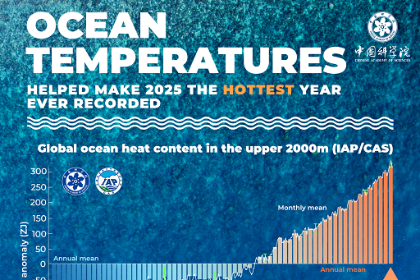Solving the security dilemma


WANG XIAOYING/CHINA DAILY
Middle East countries should make development the priority of their national strategies
The Middle East has long suffered from a serious security deficit due to geopolitical conflicts and interference from outside powers. The region has been mired in turbulence as a result of intertwined traditional and nontraditional security threats, deteriorating development deficit and governance deficit, and hostilities among regional countries.
Since the so-called Arab Spring swept the Middle East in 2011, countries including Yemen, Syria, and Iraq have been plunged into chaos and civil wars triggered by intensifying sectarian and ethnic clashes. The latest flare-up in the Israel-Palestine conflict has cast a shadow over the security situation in a region which had witnessed a wave of rapprochement catalyzed by the Iran-Saudi Arabia reconciliation.
The latest war between Israel and Palestine, the most deadly conflict between the two sides over the past five decades, stems from the failure to implement the two-state solution owing to intervention from outside powers. The recent outbreak of the Israel-Palestine frictions, a fundamental problem plaguing the region for decades, clearly exposes the vulnerability of the security architecture of the Middle East.
Internally speaking, the security deficit in the region has complex reasons, including inefficient governance, a regional economy highly dependent on Western countries, and immature nation building. The state system of the Middle East is a legacy of colonialism, and regional countries have been highly dependent on the West in political and economic terms.
The United States is to blame for the security dilemma in the Middle East. The US gives one-sided support to Israel and ignores Palestinian people's rights to survival and statehood. By seeking to broker peace deals between Arab countries and Israel, the US eyes forging an alliance against Iran in the region while containing Russia and China, which has led the Middle East peace process onto a wrong path. The ongoing Israel-Palestine war is the very consequence of the failure of the US' Middle East policy.
In March 2023, Saudi Arabia and Iran reached a deal to resume diplomatic ties under the mediation of China. The foreign ministers of the two countries met in Beijing in April and announced the restoration of diplomatic relations after seven years of estrangement. The rapprochement between the two Middle East rivals demonstrates China's positive role in solving security problems in the region, and shows that the Global Security Initiative holds immense significance in addressing the security dilemma besetting the Middle East.
First, the traditional security concept advocated by the US-led West mainly serves their own interests, which only aggravates the turbulence and chaos in the Middle East, as can be seen from the latest Israel-Palestine conflict. The Global Security Initiative breaks the Western monopoly on Middle East security issues by advocating respect for sovereignty and territorial integrity of countries and building a security architecture that conforms to the reality of the Middle East.
Second, the Global Security Initiative helps establish a new security concept in the Middle East. By offering a new solution to solving the security problems of the Middle East, the peace and security concept proposed by China and the actions it takes to promote peace in the Middle East have won recognition from the international community and regional countries.
Third, the China-brokered rapprochement between Saudi Arabia and Iran triggered a wave of reconciliation in the Middle East, which facilitated the settlement of security issues in the region, and provided opportunities for countries such as Yemen and Syria to solve their domestic problems. As a result, solidarity and development have become the trends of the times in the Middle East.
While the new wave of Israel-Palestine conflict has cast a shadow over the prospect of security situation in the Middle East, the diplomatic interactions between Saudi Arabia and Iran demonstrate that the wave of reconciliation in the region has withstood the test of geopolitical turbulences and has a sustainable future. The fact that Middle East countries have changed the priority of their national strategies from security to development means it is not an expediency but a long-term policy for them to seek rapprochement.
Going forward, Middle East countries should focus on development, seek to solve problems through dialogues, boost their strategic autonomy, and create a new path to security that meets their own conditions.
First, promote peace through development. In 2016, President Xi Jinping put forward the concept of "promoting peace through development" in a speech made at the headquarters of the Arab League. Overcoming the development deficit is the only way for the Middle East to enjoy lasting peace and stability.
Second, promote peace through dialogue. The history of the Middle East shows that wars and sanctions are not the right way to settle conflicts. The root of the security crisis can only be eliminated by enhancing strategic communications and boosting trust among Middle East countries. The reconciliation between Saudi Arabia and Iran has set a good example of solving conflicts and demonstrated that dialogue is the right path to lead the region out of its security dilemma.
Third, build a security architecture with strategic autonomy. Despite the positive changes and peace dividend brought by the restoration of diplomatic ties between Saudi Arabia and Iran to the regional geopolitical landscape, there are still many security problems to be solved before regional countries can enjoy lasting peace. To build a more sustainable security architecture, Middle East countries need to enhance their strategic independence.
Fourth, properly manage differences under the guidance of de-securitization. Some Middle East countries have come to realize that securitization will only lead to a lose-lose result, and de-securitization is the correct approach to solving conflicts, a lesson the region has learned from the wave of reconciliation. Seeking common ground and properly managing differences is the important way for regional countries to break out of the security dilemma.
As the Israel-Palestine conflict is raging into its fifth month and spilling over to other parts of the region, including the Red Sea, Lebanon and Iraq, it has severely disrupted global shipping and supply chains. The US' military actions in retaliation against Houthi and other militia groups in the Middle East have added fuel to the fire in the region. At such a critical moment, all parties should cherish the sound security environment brought by the Saudi-Iran reconciliation, promote and implement the Global Security Initiative, and strive to build a new security architecture in the Middle East.
The region will only enjoy lasting peace when fundamental problems besetting the region such as the development deficit, the lack of independent national strategies, and the Palestine-Israel conflict are solved through development and dialogue.
The author is a professor of the Institute of Middle East Studies at Shanghai International Studies University. The author contributed this article to China Watch, a think tank powered by China Daily. The views do not necessarily reflect those of China Daily.
Contact the editor at editor@chinawatch.cn.


































